'In Vishal Bhardwaj's now fully set world of manufactured poetry, characters wear their emotions at their most prescribed anatomical positions -- courage on their chins, pride over their chests, and innocence in their faces,' observes Sreehari Nair.
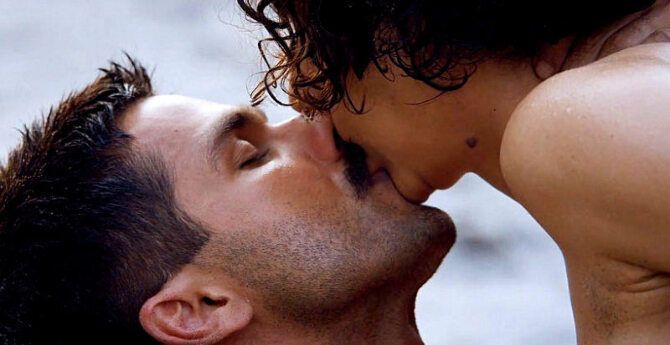
When friends ask me to describe the essence of French New Wave Cinema, I tell them about a scene that I have carried with me in my wormy head. The scene has Jean-Paul Belmondo and Jean-Pierre Léaud, playing two slugs, talking casually about the women they've dated; smoking as they are exchanging notes.
The setting is Belmondo's apartment in Paris. Léaud stops suddenly and asks if he can have an ashtray. Belmondo, his cigarette still hanging between his lips in that askew manner, fishes around and hands Léaud a copy of Flaubert's Sentimental Education, remarking in the process, "Here... Use this. The book mattered a lot to me when I was younger; don't care about it anymore."
The above scene may not exist outside of my imagination, but to me it stands for the kind of poetry the New Wave filmmakers were chasing. '
It wasn't the poetry of lines, meters or couplets, but of random playful conversations centered around art, politics, religion, and women, small but revealing conversations, all taking place in smoke-filled rooms of candles and cheap movie posters, the camera always eager but never intruding, conveying a sense of wistfulness and loss.
Movie poetry is what Vishal Bhardwaj also aspires for, but since Maqbool (for my money, the best Hindi movie of the last decade) Bhardwaj's poetry has only intermittently leapt out from the page and made it to the screen.
He is still a solid writer, with a talent for nippy dialogues and quite a fine-boned sense of structuring, but now seems wedded to the kind of poetry that quits breathing when the ink on the page dries.
This entire discourse becomes complex when you consider that Bhardwaj is no ordinary artist in that he is among only a handful of Indian filmmakers who put themselves at jeopardy level every time they think up a movie.
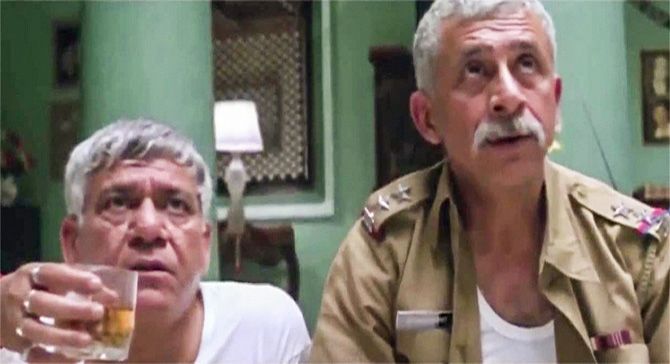
When analysing a work by a filmmaker such as him, I am always trying to deduce the initial impulses. And in Rangoon, like in most of Bhardwaj's movies, the first 20 minutes gives it away; we realise he is setting us up for a world of conflicting passions: where one man's pride becomes another man's pain, where someone's casual joke burrows out someone else's deep-seated hurt, where a fairness cream jingle segues into the topic of white-man domination.
The writer-director concentrates all these conflicting passions inside Saharsh Shukla's Zulfi, who is a spear-carrier to Kangana Ranaut's Julia: A funny-bunny girl who morphs into a glass-eyed goddess when on screen.
If there's any cinematic poetry in Rangoon, it can be found in Zulfi's arc, where his desperations and the ripples they generate turns the movie into a comedy of manners.
In this segment, Bhardwaj never strains to achieve his intended effects, but they simply seem to materialise; when Zulfi jumps over a bobbing raft to save Julia's trunk (which, in the reality of the movie, also contains an object of revolutionary importance) it gets perceived by everyone as an act of undying loyalty toward Julia, and a tragicomic tone bubbles forth.
Later, Zulfi arrives, saved from drowning, looking frail, but still clutching onto the trunk, and everyone runs over to hug him -- the celebration there has the absurdity of great farcical literature.
Zulfi is a hero, only, not quite the hero they all think he is.
Shukla plays him as someone with a face of Jagdeep Jaffrey and the spirit of a child-warrior, and communicates to us each surprise as he experiences it on the run.
Would the narrative have played out better if it'd unfurled through the eyes of those fringe characters (there's an entire coterie of fine actors here, counting the raindrops for Ranaut), ones like Zulfi, who are shown to hold in their little hearts big secrets and who cry when they discover their inner reserves of strength?
Bhardwaj, because he is so focused on 'the big sweep,' never quite lets us know.
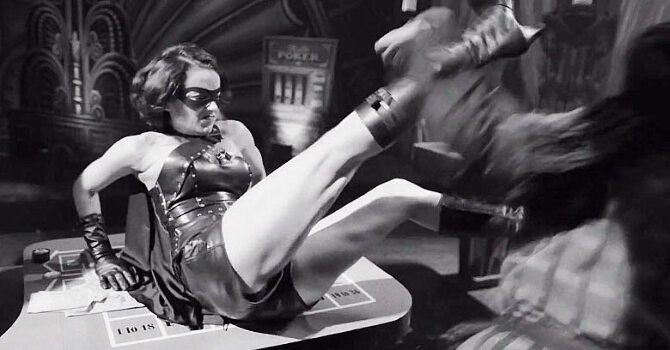
In his pursuit of the sweep, the director undercuts the crisscrossing tensions and tries to stitch together a plot.
So characters become character-types, lines become quotations, and text overshadows directorial instinct.
To dole out a zinger, Bhardwaj goes for the poetry that's constructed as opposed to the poetry that emerges.
I was compelled to think about French New Wave in relation to Rangoon and Bhardwaj's entire post-Maqbool oeuvre, particularly because of a sequence here which has Kangana Ranaut sprinting across a bridge -- cutting immediately in my head to Jeanne Moreau in Jules and Jim running over an overpass with her two lovers trying to match up.
The recollection was perhaps incidental, but the contrast between the scenes was stark.
In Jules and Jim, the camera follows Moreau tightly, her moustached-face breezing past the railings, breathing in delight.
The sequence, in the way it is shot espouses Truffaut's theory that 'a film must express either the joy of making cinema or the agony.'
That scene is poetic, but in the spirit of cinema, it is poetry borrowed from life.
55 years since Jules and Jim's release and 33 years since Truffaut's death, in that scene, one can still -- if one responds to it fully -- feel the filmmaker's heart pounding.
Bhardwaj, whether on the bridge, or on land, inside a derelict Rashomonesque home, at a war camp, in the valley, or the badlands of Omkara, seems primarily interested in translating what's on his page.
He is like a Rockettes performer just kicking them out. There's no joy he may be suddenly discovering, or problem he may be solving on his feet that we can feel in our nerve endings; which is what we feel in movies that we term 'alive.'
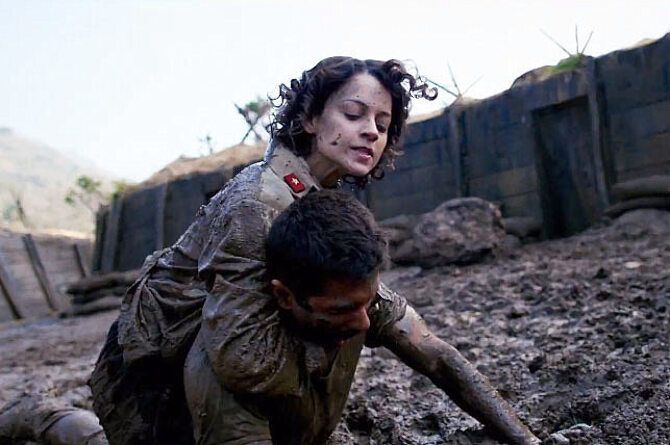
'And I wouldn't have cared if it was a free-fall, an illustration of a director carelessly crossing over to the theatre of excess.'
'But the excesses in this movie aren't the excesses of a crazy scientist who's burning out the fuses -- it's that of a filmmaker who still wants to hold himself back and disguise his narcissism.'
Over the years, as he has turned too precious about his penmanship, Vishal Bhardwaj may also have inadvertently become too definite about the way his actors must interpret their characters.
This again is not a vice, if you consider how enthusiastically many critics regularly blurt out, 'This movie lacks a SCRIPT!' (Which, trust me, is naiveté about the process of moviemaking expressed as belligerence).
Maqbool, for the most part, cradled his greed between his legs; there was a way in which Irrfan moved in that picture that suggested he was a man being constantly throttled by contrasting forces.
However, in Vishal Bhardwaj's now fully set world of manufactured poetry, characters wear their emotions at their most prescribed anatomical positions -- courage on their chins, pride over their chests, and innocence in their faces.
In that emotionally violent sequence in Maqbool where Tabu asks Irrfan to profess love to her, and he parrots it out, the elements of nature seem to converging upon the actors, deepening the meaning of the scene.
In Rangoon, Kangana's mud-fight with Shahid or her sword-fight with Saif has the same passion-expressed-as-a-virulent-disease feel of Sanjay Leela Bhansali's many sequences.
At least, we know that every Bhansali movie is a monument to the man's ego, but in Bhardwaj's case there seems at play an artist pulling at the sleeves of a mathematical filmmaker, allowing neither the ego nor the artistry to break through.
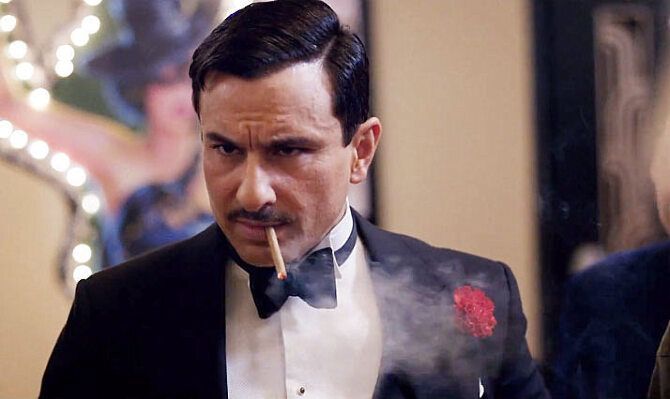
In this tale of romanticised insanity, it is Saif Ali Khan's Rusi, who gets most shortchanged. Khan's career will remain -- for someone like me who was once a fan -- a career sacrificed at the altar of looking good.
Between Dil Chahta Hai and Omkara, when the actor went through a phase where he just didn't mind muddying himself up, it had set free something in him; something too good for words.
For the last 10 years or so, how he looks on screen seems to have become of great importance to Saif, and almost as if he knows this innermost drive, Bhardwaj here gives Saif a character that exists only to pin his aristocracy to his jaw-line.
Consequently, the actor just seethes, repeats his preferred epithets and platitudes, breathes in and out, as others around him lap up Vishal Bhardwaj's calibrated verses to create false dramatic flourishes.
Shahid keeps his soul, Kangana finds her soul, and Saif, well, we can't quite tell from his jaw.
The problem with Rangoon, as with all of Bhardwaj's movies since Maqbool is that the strands making up his stories are often so rich that when the director goes ahead and unties them for the sake of a movie plot, he ends up giving them a spiritual glow, so not in place with its basic complexity.
He pumps in the smarts, and after he has exhausted them, will try to give us tropes like Shahid's dying dream in Kaminey, or Kashmir's plight in Haider, or patriotism here in Rangoon, cashing far too many checks in the process.
His is a journalist's curiosity constantly thwarted by a writer's possessiveness for his text and a moviemaker's paucity for time.
Maybe there's poetry in his situation.
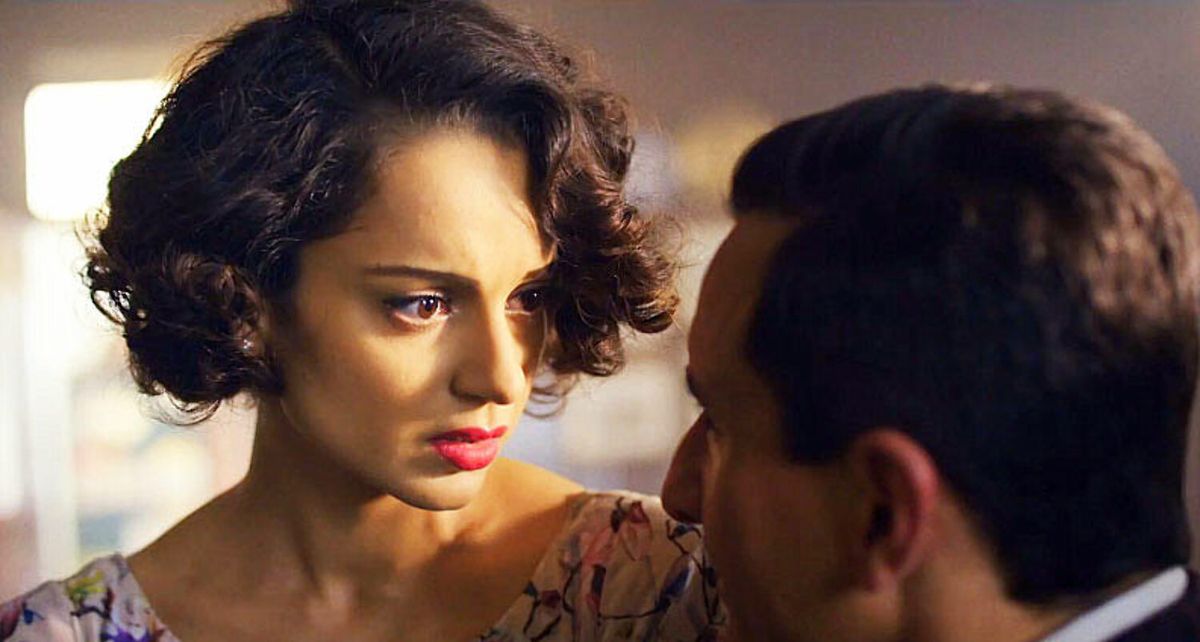
Surprisingly, Bhardwaj transports us to the time and place of the story here not through his Citizen Kane-like Depth of Field shots, but through touches such as the sound of a film projector running in the background, or a tape-recorder on a beach that wouldn't stop playing after Shahid has bumped off two of its listeners.
Somehow, there's more cinematic intelligence that comes through in these wordless bits than in those endlessly spouted passion-dialogues.
What I'd be really interested in seeing is how Vishal Bhardwaj's prodigious writing skills find interpretation in the hands of more fluid directors like Anurag Kashyap, Sriram Raghavan or Abhishek Kapoor (who with Kai Po Che demonstrated something Godfather-like: About how one can imbue depth-free literature with genuine feeling).
The last one-third of Rangoon seems to blow itself up almost intentionally. And I wouldn't have cared if it was a free-fall, an illustration of a director carelessly crossing over to the theatre of excess.
But the excesses in this movie aren't the excesses of a crazy scientist who's burning out the fuses -- it's that of a filmmaker who still wants to hold himself back and disguise his narcissism; he's a madman with the Bible in one hand and a Dictionary in the other.
Screams of 'Bhard's adapting The Bard yet again, The Bard, I repeat!' are today broadcasted on social media timelines much in the same way that announcements such as 'Look, the hors d'oeuvres are here!' once broke out at social gatherings.
There's the same canned enthusiasm, the same practiced vigor, and the same attempts to mask cluelessness with chic.
Vishal Bhardwaj may have taken some of those screams too seriously, and thus forgotten that even for a press-celebrated 'auteur,' the hoary old theory holds true, that filmmaking is a collaborative endeavour -- a process of creation where your poetry can be broken or moulded by participating players to seek a truth greater than what your page contends.
Rangoon has enough imagination for half a dozen great books, but not enough drive for one great movie.








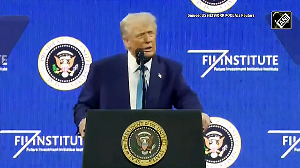
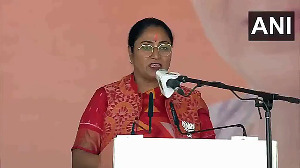
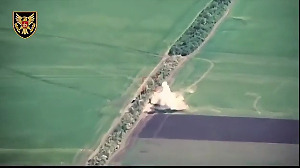
 © 2025
© 2025